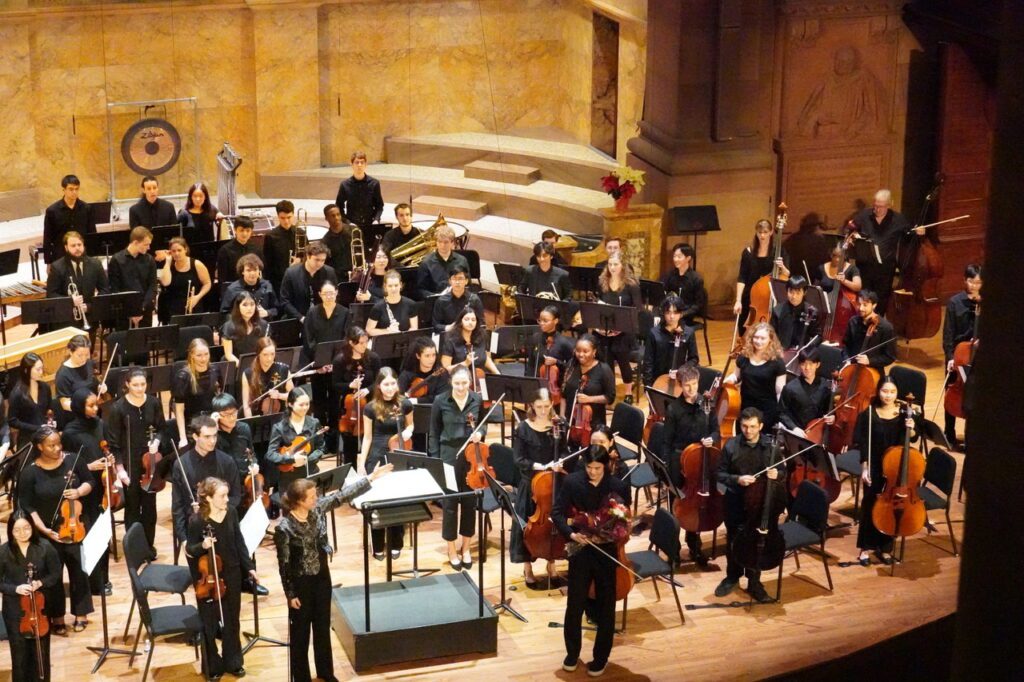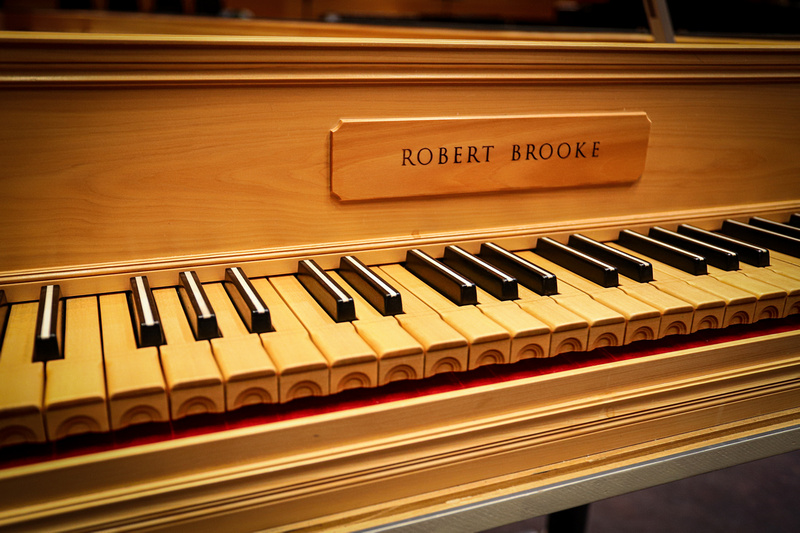The winners of this year’s Princeton University Orchestra Concerto Competition are:
Myles McKnight ’23, Robin Park ’23, Kimberly Shen ’24 (Beethoven’s Triple Concerto for Violin, Cello, and Piano in C major, Op. 56)
Aster Zhang ’24 (Shostakovich’s Cello Concerto No. 1 in E-flat major, Op. 107)
Richard Qiu ’23 (Mozart’s Piano Concerto No. 24 in C minor, K. 491)
This year’s competition was judged by Maestro Ignat Solzhenitsyn, Conductor Laureate of the Chamber Orchestra of Philadelphia and faculty member at the Curtis Institute of Music. A 1994 winner of the Avery Fisher Career Grant, Maestro Solzhenitsyn maintains an active touring schedule, with recent appearances at the helm of orchestras in Boston, Chicago, Philadelphia, St. Louis, Los Angeles, Montreal, London, Paris, and Russia, where he is also Principal Guest Conductor of the Moscow Symphony Orchestra. Maestro Solzhenitsyn and Princeton University Orchestra (PUO) Conductor Michael Pratt commend this year’s winners for their playing.
Seniors McKnight and Park and junior Shen have been selected to perform Beethoven’s singular Triple Concerto for Violin, Cello, and Piano. In this inventive and ambitious tour-de-force, Beethoven raises this beloved chamber trio of instruments to center-stage as collective soloist to his expressive orchestra.
Junior Aster Zhang will perform Shostakovich’s Cello Concerto No. 1 in E-flat major. Dating from the years following Stalin’s death, the concerto represents a freer expression of the composer’s compositional voice, replete with dissonances and sarcasm. The final movement’s ironic setting of a musical quote from Stalin’s favorite song, “Suliko,” is one candid example of the style in which Shostakovich was, during these years, more at liberty to indulge.
Senior Richard Qiu will perform Mozart’s Piano Concerto No. 24 in C minor, a later concerto from the composer’s prolific 1784-1786 years that resulted in an impressive twelve piano concertos, among numerous other works. The concerto is notable for being only the second concerto written in a minor mode up until this moment in Mozart’s career and also for its remarkably intimate character, which is greatly served by the expanded role of the woodwinds in supplementing the dramatic character of the whole.
Performance dates will be announced in the coming weeks.
In Other News

What Six Senior Music Majors’ Say About Their Theses
May 16, 2024
As we near the final weeks of spring semester and anticipated graduation for the Class of 2024, the Music Department asked six Senior Music Majors to expand on their creative thesis, as well as share words of encouragement to future students.

It takes a village: Projects for Peace winner Carlos Cortez ’24 and the people of Zináparo bring music and soccer to their youth
Jan 23, 2024
It takes a village: Projects for Peace winner Carlos Cortez ’24 and the people of Zináparo bring music and soccer to their youth

Student Perspectives: The Musical Odyssey of Princeton’s Adrian Thananopavarn
Jan 18, 2024
Adrian P. Thananopavarn ’24, Math major with certificates in Computer Science and Music Composition, premieres “March of Dusk” with Princeton University Sinfonia


